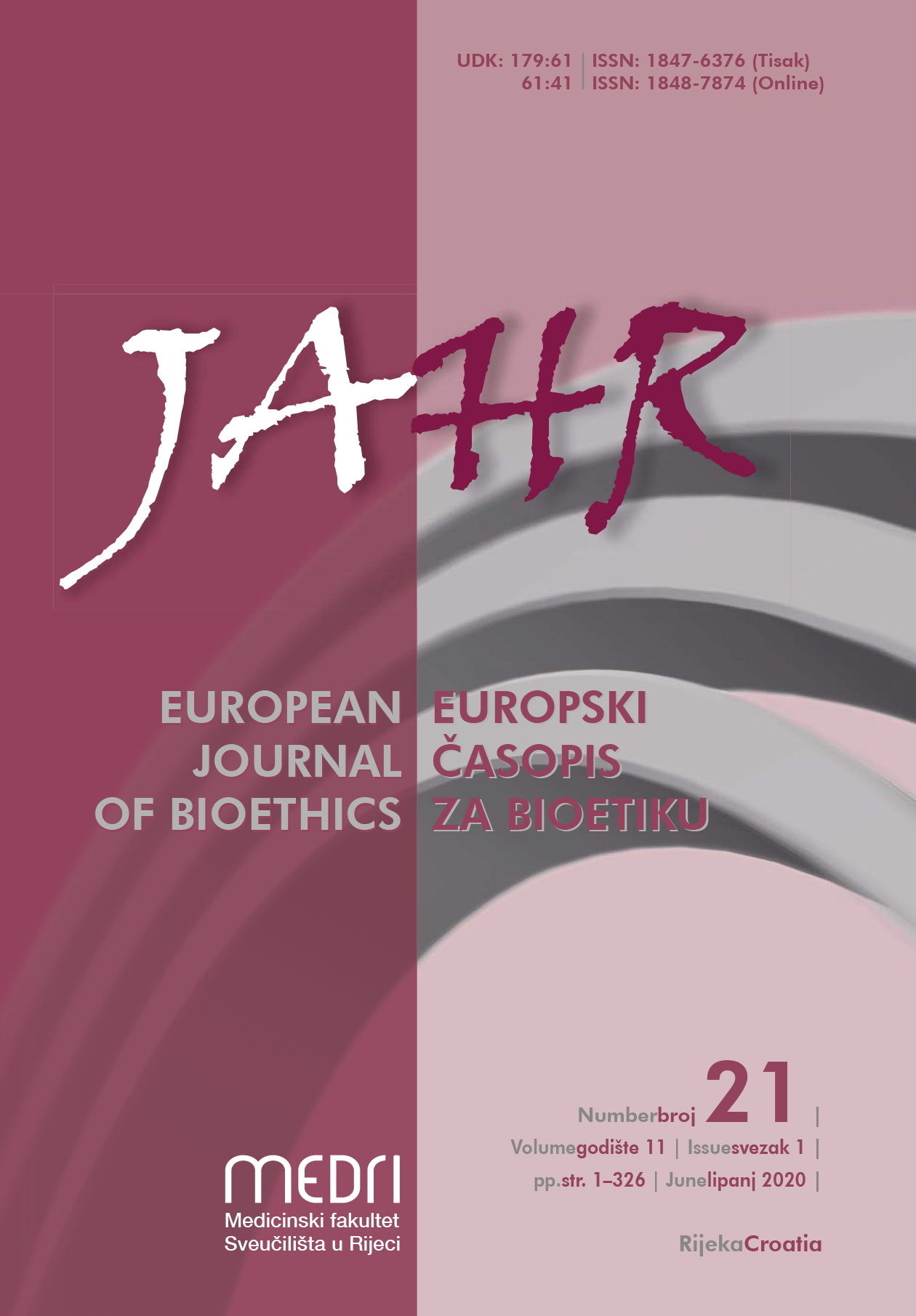From Mere Urbanity to Urban Bioethical Standards: An Invitation to a Broadening of Bioethics
Keywords:
bioethics, city, standards, EuroBioActAbstract
https://doi.org/10.21860/j.11.1.7
An interest in research, deliberation, and reflection on urbanity has been present for a long time. Due to rapid urbanisation in the last few decades, such interest has intensified, attracting scholars from different disciplines and creating new platforms for discussion.The first indicators of a ‘bioethical’ interest in urban life are already present in Van Rensselaer Potter’s early papers (urban ethics. However, more extensive research into urban bioethics remained on hold until recently, mainly due to the dominance of the biomedical paradigm within modern mainstream bioethics. In 2017, the European Bioethics in Action project (funded by the Croatian Science Foundation) ended, resulting in a list of general bioethical standards related to animals, plants, and human health. The aim of this paper is to present the rationale for developing bioethical standards in a specific urban context.
Downloads
Published
Issue
Section
License
Authors who publish with this journal agree to the following terms:
- Authors retain copyright and grant the journal right of first publication with the work simultaneously licensed under a Creative Commons Attribution License that allows others to share the work with an acknowledgement of the work's authorship and initial publication in this journal.
- Authors are able to enter into separate, additional contractual arrangements for the non-exclusive distribution of the journal's published version of the work (e.g., post it to an institutional repository or publish it in a book), with an acknowledgement of its initial publication in this journal.
- Authors are permitted and encouraged to post their work online (e.g., in institutional repositories or on their website) prior to and during the submission process, as it can lead to productive exchanges, as well as earlier and greater citation of published work (See The Effect of Open Access).



